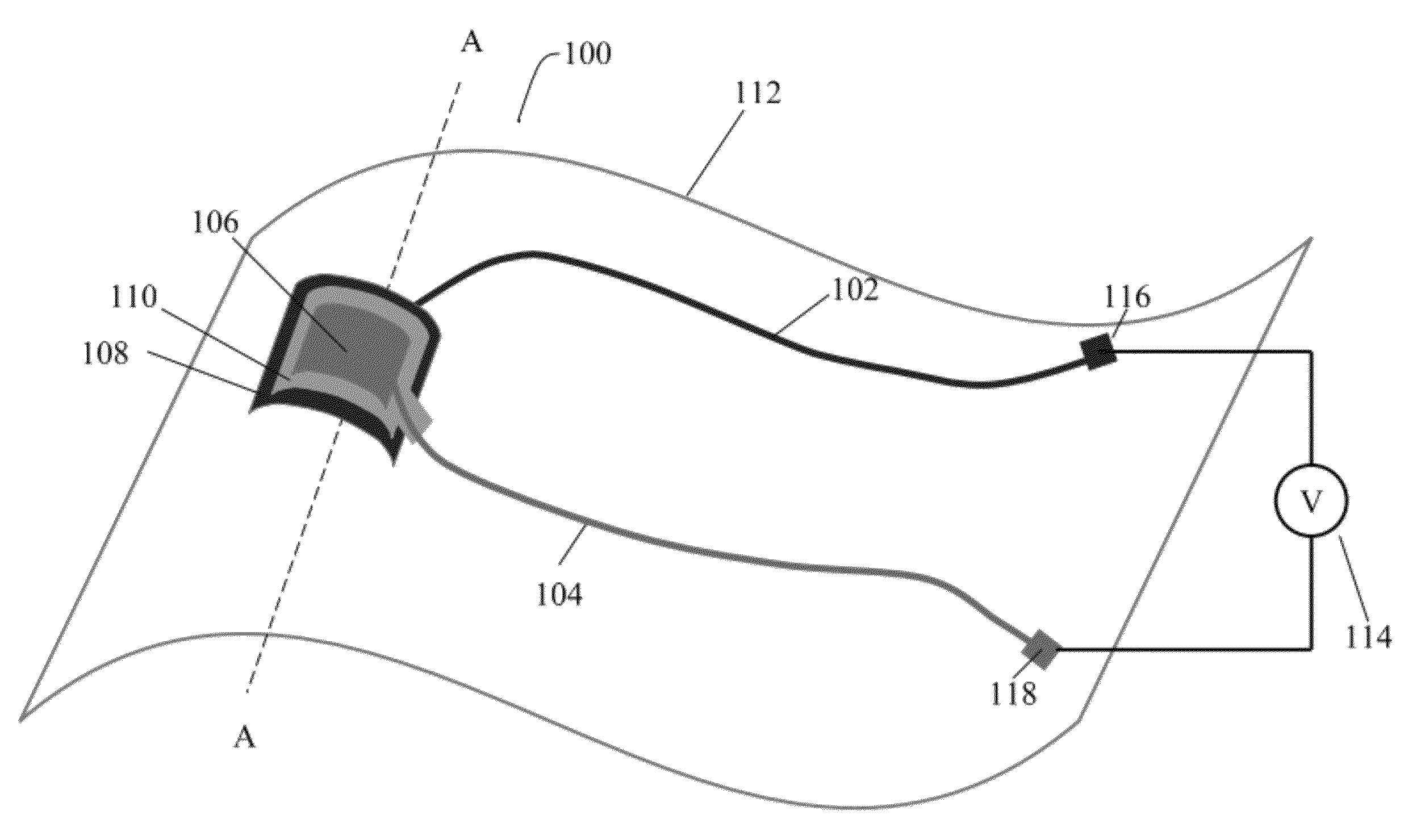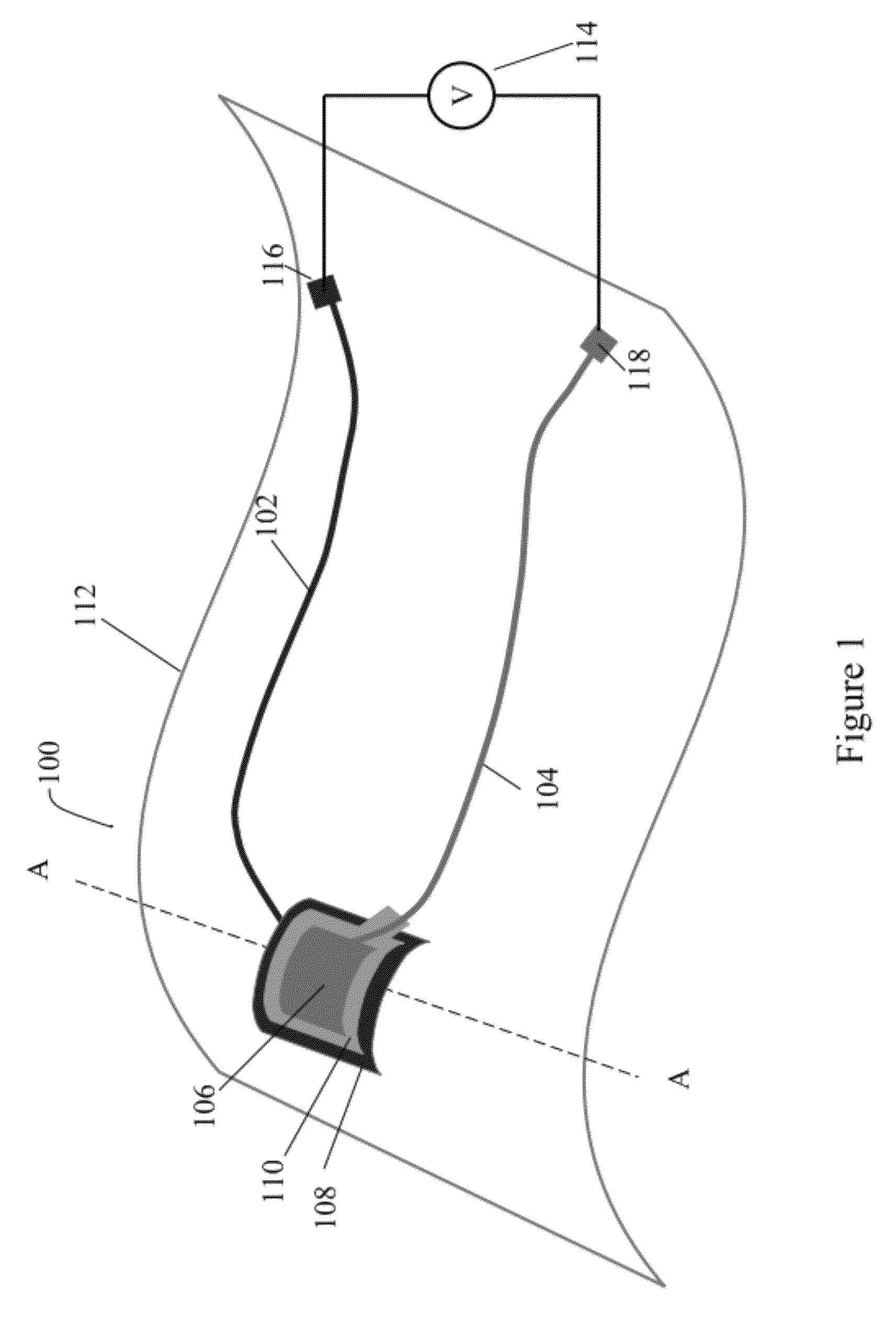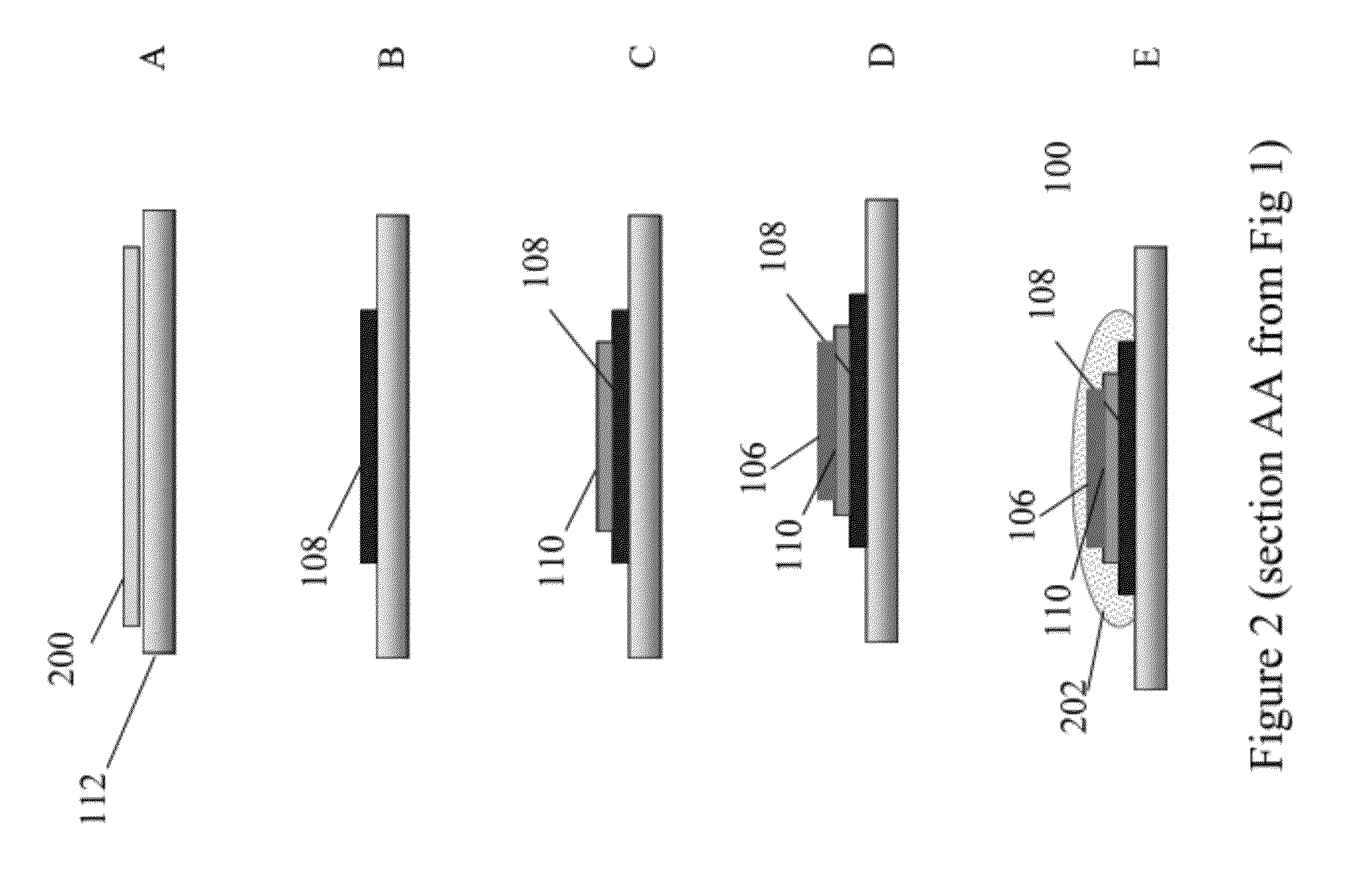Pressure sensing or force generating device
a technology of pressure sensing and force generating device, which is applied in the direction of force measurement, force measurement using piezo-resistive materials, instruments, etc., can solve problems such as drawbacks and limitations, and achieve the effects of less likely to cause trauma upon contact, reduced device count, and dense device packing
- Summary
- Abstract
- Description
- Claims
- Application Information
AI Technical Summary
Benefits of technology
Problems solved by technology
Method used
Image
Examples
example 1
Piezoelectric Polymer Pressure Sensor on an Endotracheal Tube
[0082]Silver ink was prepared by dissolving poly(vinyl chloride) (Colorite® Flexchem 5051-02) at a level of 16.7% by weight in cyclohexanone. Silver flake (10 μm, >99.9%, Sigma-Aldrich) was added to yield a ratio of silver:poly(vinyl chloride) of 90:10. The total solids were 68% by weight. In order to enable thorough mixing, the materials were combined using a planetary high shear mixer (Kurabo Mazerustar KK-50S).
[0083]Piezoelectric polymeric ink was prepared by dissolving a polyvinylidene fluoride-trifuoroethylene (PVDF-TrFE) copolymer (75:25 mole ratio; Kynar copolymer, Measurement Specialties Inc) in n-methyl pyrrolidone to make a 30% solution.
[0084]Using the silver ink, a bottom electrode and lead were written on a commercially available standard endotracheal tube (Unomedical Air Management, Magill, HVLP cuff) and cured at 100° C. for 30 minutes. Then, three layers of the piezoelectric polymer were written onto the sur...
example 2
Piezoelectric Polymer Pressure Sensor on Cuff with Overcoat
[0086]A PVDF-TrFE piezoactive layer with top and bottom electrodes was prepared in a manner identical to Example 1, except that it was positioned on the cuff of the endotracheal tube and was covered with a UV-curable medical polymeric encapsulant (Dymax 1-20323; Dymax Corporation) which was subsequently cured via ultraviolet irradiation.
example 3
Piezoelectric Ceramic Pressure Sensor on Tube
[0087]A piezoelectric sensor with electrodes was prepared identically to Example 1, except that the piezoelectric material was BaTiO3. The BaTiO3 ink was prepared by dissolving poly(vinyl chloride) (high molecular weight, Aldrich) at a level of 13% by weight in dimethylacetamide, and adding BaTiO3 particulate (Barium titanate (IV), 3 was 31.25:68.75 and the total solids were 30.1% by weight. The ink was deposited in two layers and each layer was cured at 80° C. for 30 minutes to yield a total thickness of approximately 12 μm.
[0088]The sample was connected and poled identically to Example 1, and exhibited a piezoelectric response of about 20 mV when flexed.
PUM
| Property | Measurement | Unit |
|---|---|---|
| thickness | aaaaa | aaaaa |
| thickness | aaaaa | aaaaa |
| thickness | aaaaa | aaaaa |
Abstract
Description
Claims
Application Information
 Login to View More
Login to View More - R&D
- Intellectual Property
- Life Sciences
- Materials
- Tech Scout
- Unparalleled Data Quality
- Higher Quality Content
- 60% Fewer Hallucinations
Browse by: Latest US Patents, China's latest patents, Technical Efficacy Thesaurus, Application Domain, Technology Topic, Popular Technical Reports.
© 2025 PatSnap. All rights reserved.Legal|Privacy policy|Modern Slavery Act Transparency Statement|Sitemap|About US| Contact US: help@patsnap.com



